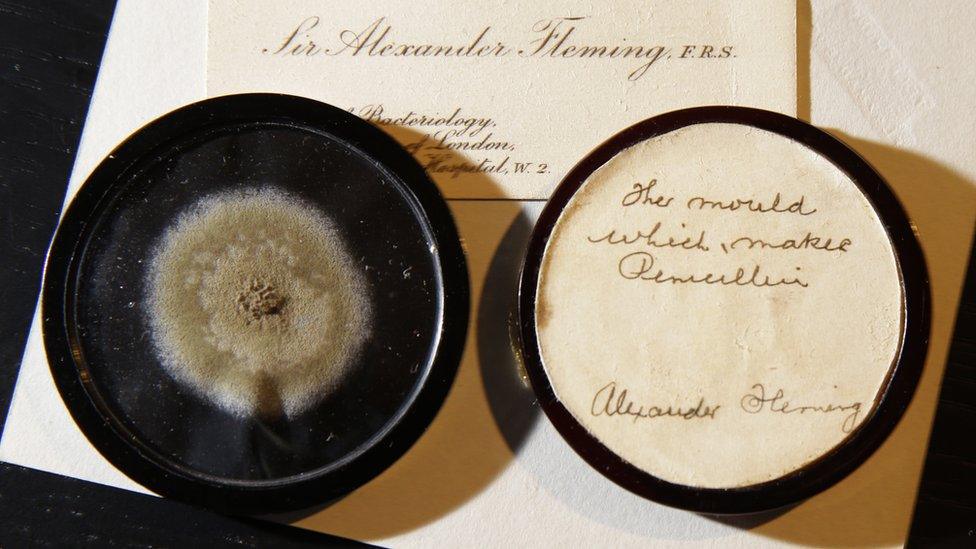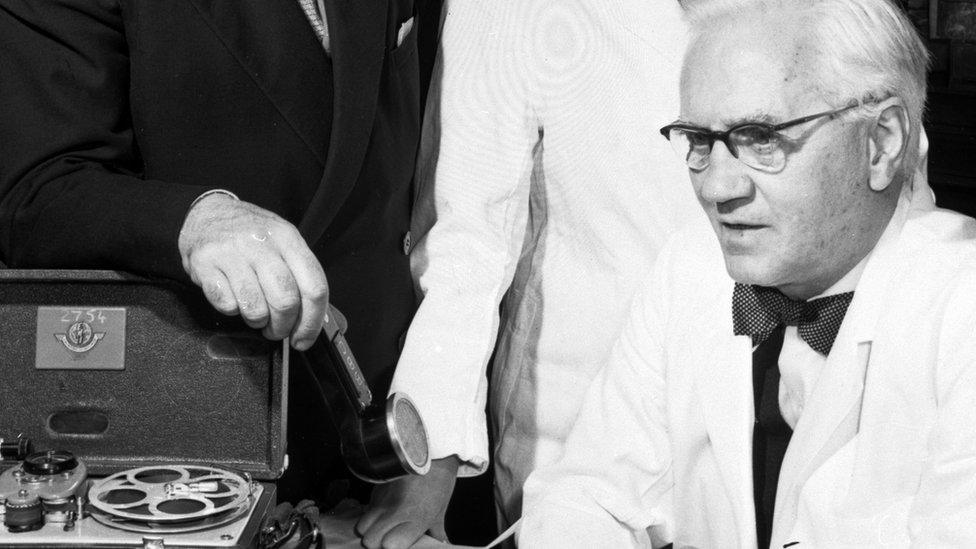Alexander Fleming's mould samples sold at auction
- Published

Sir Alexander Fleming labelled the fungus as "the mould which makes penicillin"
Samples of penicillin mould, signed and inscribed by Sir Alexander Fleming, have been sold at auction.
Labelled as "the mould which makes penicillin", the green substance was produced by Fleming in his laboratory after he discovered penicillin in 1928.
The Ayrshire-born bacteriologist went on to the win the 1945 Nobel Prize in medicine for the discovery which ultimately revolutionised medicine.
The samples were sold at Bonhams in London for £24,375.
It was while studying influenza that Sir Alexander famously noticed mould had developed accidentally on a set of culture dishes being used to grow the staphylococci germ.
Papers and memorabilia
The mould had created a bacteria-free circle around itself. Sir Alexander experimented further and named the active substance penicillin.
However, it was two other scientists - Australian Howard Florey and Ernst Chain, a refugee from Nazi Germany - who developed penicillin further so that it could be produced as a drug.

Sir Alexander Fleming was awarded the Nobel Prize for medicine in 1945
In addition to the mould samples, the lots sold included Sir Alexander's papers and memorabilia kept by his niece Mary Elizabeth Johnston.
Among them were Sir Alexander's journal of a 1945 tour of the United States and a 1957 telegram to him from the film star Bebe Daniels.
Head of Bonhams Book Department, Matthew Haley said: "The high prices paid for these lots reflect their importance and the enduring fascination with Sir Alexander Fleming's crucial discovery to which so many millions of people all over the world owe their lives."